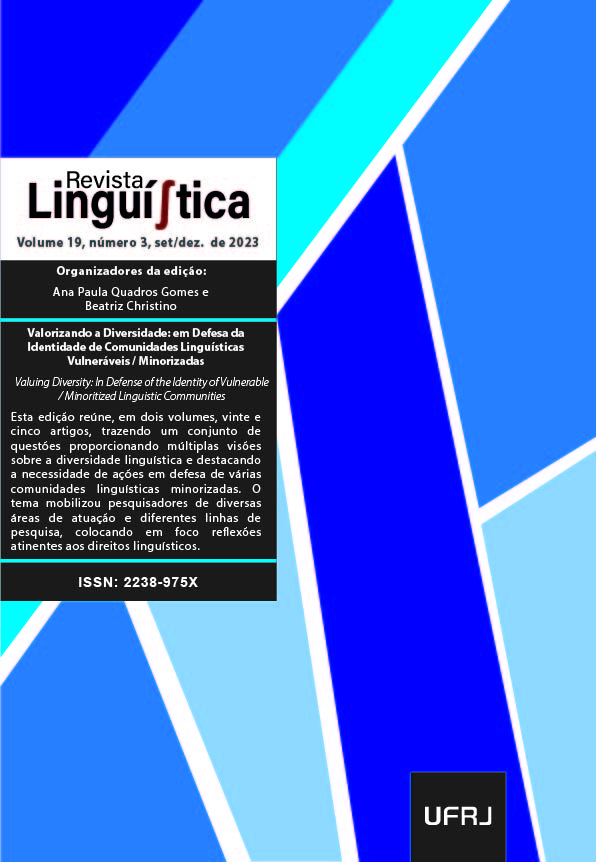Language and power relations: the relatively arbitrary controversy of non-binary language
DOI:
https://doi.org/10.31513/linguistica.2023.v19n3a60378Keywords:
Língua, Mudança Linguística, Linguagem Não-binária, Atitudes Linguísticas, Relações de PoderAbstract
The present study proposes a reflection on the Portuguese language and the power relations that constitute it, taking non-binary language as an object of consideration and its possible points of convergence with the text The language – instructing new worlds/new words, published in the book Teaching how to transgress: education as a practice of freedom, by Hooks (2013). To this end, a dialogue is sewn with other authors who are dedicated to the subject, with the intention of contributing to the theoretical movements of rupture with the tainted single understanding of the language – the hegemonic one – and reinforce the need to change our way of thinking about the that belongs to the way we manipulate certain lexicons in the social locus. Arguments are based on the epistemological concept of Foucault (1979), concerning the notions of power, starting from the “erasure” of the congenital human multiformity of conservative convictions, perpetuated in acts immanent to colonial thought. It adds to the contributions of Kilomba (2019), which reframe the systematic way in which we see discourse and its semiotic weight, in the effigy of avant-garde despised by institutions that are, by conjecture, majority. With the purpose of adding to linguistic studies, the article sets out to assess the value of the so-called non-binary language in Brazilian law and its reverberations in the school environment, based on validation mobilizations and stoppage of public policies aimed at its control. Finally, there is talk of media bias, purposeful or contingent, correlated to “gender ideology” and its impact on the evolution of societal agreements relevant to pluriculturalism.
Downloads
Published
Issue
Section
License
Copyright (c) 2024 Revista Linguí∫tica

This work is licensed under a Creative Commons Attribution-NonCommercial 4.0 International License.
Authors who publish in the Revista Linguí∫tica agree with the following terms:
The authors maintain their rights, ceding to the journal the right to first publication of the article, simultaneously submitted to a Creative Commons license permitting the sharing with third-parties of published content as long as it mentions the author and its first publication in the Revista Linguí∫tica.
Authors may enter into additional agreements for the non-exclusive distribution of their published work (for example, posting in online institutional or non-profit repositories, or book chapters) so long as they acknowledge its initial publication in the Revista Linguí∫tica.

The journal Revista Linguí∫tica is published by the Post-Graduate program in Linguistics of UFRJ and employs a Creative Commons - Attribution-NonCommercial 4.0 International (CC-BY-NC).









